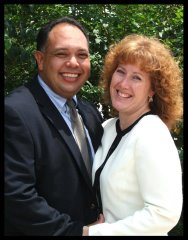Scholastic, 2001
ISBN 0-439-45230-9
Summary:
Witness describes the effect the Klu Klux Klan has on a small Vermont town in 1924. The story unfolds in five "acts" with poems from different characters chronicling the rise and fall of the Klan.
Critical Analysis:
While Witness does not compare to Hesse's Newbery winning poetry novel Out of the Dust, it is still a worthwhile read.
Hesse certainly avoids any cliche for stories about the Klan by setting the book in Vermont instead of the South. This unusual setting makes the story interesting because most of us never stop to think about racism in the North. Another break with cliche is that the characters who become involved with the Klan are not all evil people. Some are, but others are simply "regular" folk who like the values of patriotism and family life that the Klan's propaganda claims, although they are not completely comfortable with some of the bigoted attitudes of fellow members. We often ask the question, "How could people become wrapped up in an offensive group like that?" and Hesse offers possible explanations as her characters wrestle with the decision to join or not to join.
The introduction to the book is a gallery of portraits representing the various characters whose poems will tell the story in five acts. I found myself looking back at the photos and character descriptions often as I read.
Hesse uses blank verse with no capital letters to tell her characters' story. Overall, I felt the poetry sacrificed imagery and beautiful wording so that the plot could move forward more quickly. Probably the most interesting sounding poetry comes from six-year-old Esther Hirsch, who has some unusual speech habits:
"i did give helpings to sara chickering.
we did dip all the keys in oil and put the oil keys in the locks
and then
openshutopenshut
we did take feathers and we did oil those
and we did move through the house,
out to the barn,
tickling hinges with our oiled feathers."
While the child's point of view and "tickling hinges" are interesting, the strange speech habits become annoying after several poems.
Witness is a powerful story that needs to be told and read; however, don't expect the same kind of magic from this poetry as you can find in Out of the Dust.
Review Excerpts:
"The account is sometimes contrived (the all-lower-case type isn't particularly useful, and some of the characters, such as the rather predictable cowardly preacher, are functionary) and sometimes romantic, . . . but this is also a thoughtful and thought-provoking examination of a national phenomenon on a local level."
Deborah Stevenson, Bulletin of the Center for Children's Books, November 2001, v.55, no. 3
"Hesse's latest free-verse novel employs eleven different voices to record the Ku Klux Klan's effects on a Vermont town in 1924, with dubious success. . . . Witness has a compelling story to tell, but one that is too complex to work effectively in this format."
Christine M. Heppermann, The Horn Book, November/December 2001, v.77, no.6
Connections:

No comments:
Post a Comment